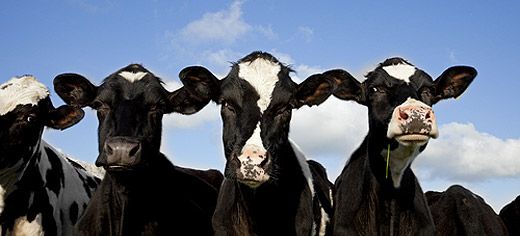
Step forward in foot-and-mouth disease understanding
Scientists have discovered a mechanism they believe may play a key role in the spread of foot-and-mouth disease in animals.

Scientists have discovered a mechanism they believe may play a key role in the spread of foot-and-mouth disease in animals.

Researchers have confirmed a unique behaviour within the male population of tiny fig wasps that pollinate fig trees - they team up to help pregnant females, even if they have not mated themselves.

An international team of researchers from Leeds, London and Berlin has discovered more about the function of muscle stem cells, thanks to next-generation DNA sequencing techniques.

Was it humans or climate change that caused the extinctions of the iconic Ice Age mammals (megafauna) such as the woolly rhinoceros and woolly mammoth?

Traces of bizarre, bone-eating 'zombie' worms have been found on a three million year old fossil whale bone from Tuscany in Italy.

It's a dirty job, but someone has to do it. Researchers from the University of Leeds have teamed up with Sellafield Ltd to clean up radioactive sludge produced by the UK nuclear industry.

Professor Tom Ray will talk about the birth of our solar system in the School of Physics & Astronomy's 12th annual Bolton Lecture on 18 October 2011.

The final throes of one of the largest and rarest stars in our galaxy have been discovered by astrophysicists using the European Southern Observatory (ESO).

A drug used to protect bone may extend survival in older breast cancer patients, according to researchers at the Universities of Sheffield and Leeds.

New research shows that a large-scale volcanic eruption in southern Iceland, similar to the Laki eruption in 1783, could result in widespread air pollution across Europe.